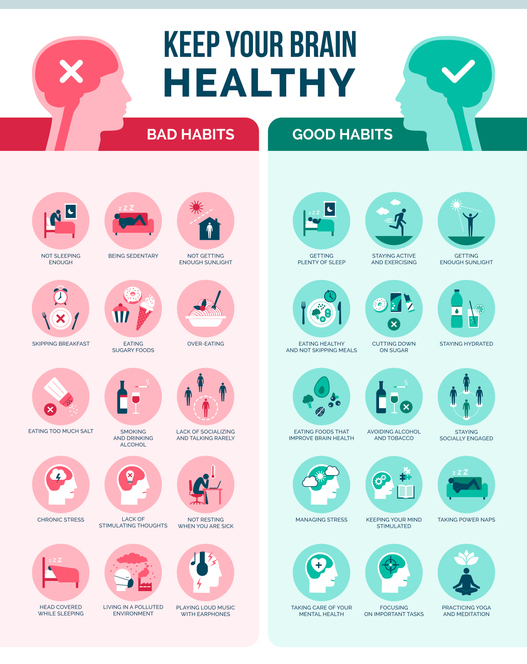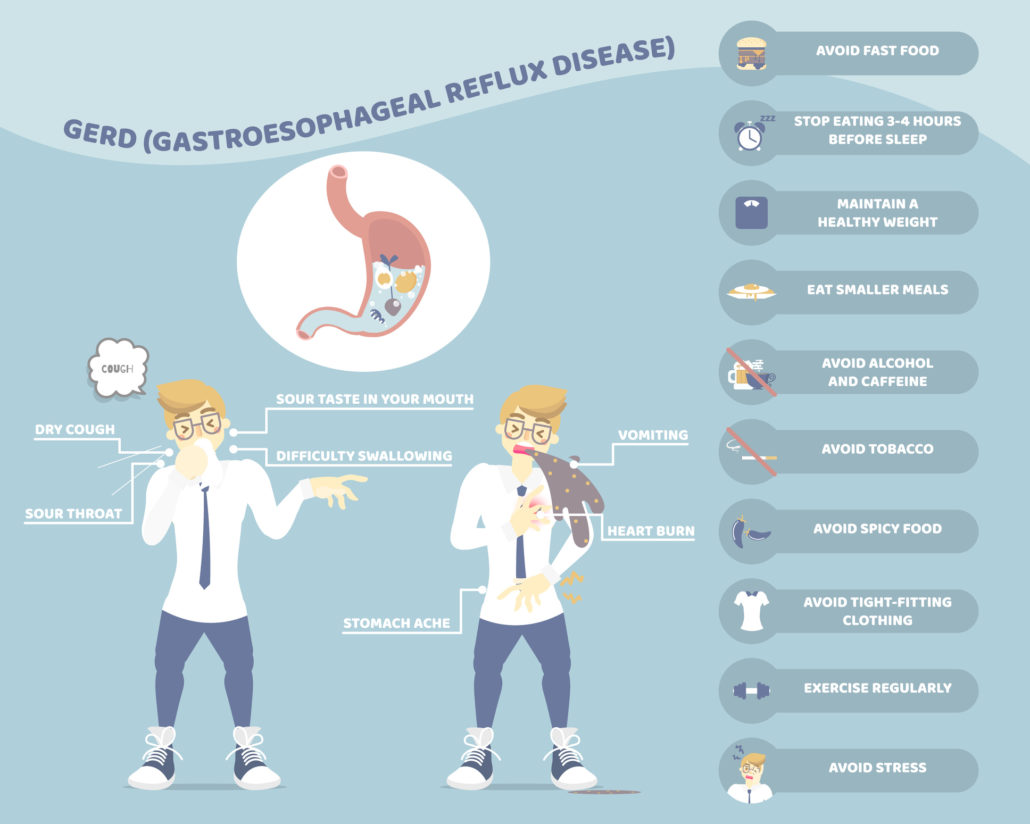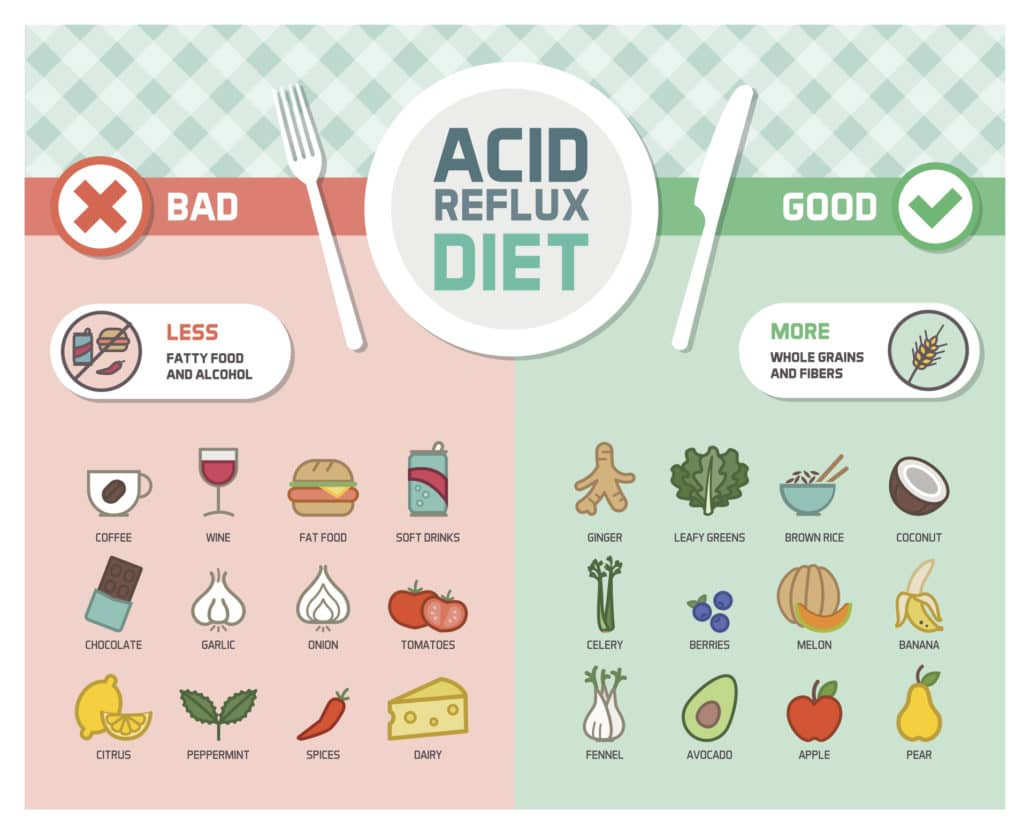Dr. Matthew Olesiak continues to make a significant impact in the medical field through his work at SANESolution and his dedication to evidence-based practices.
Maintaining Gut and Throat Health for Overall Wellbeing
Most people do not associate throat problems with the state of their guts, but there is indeed a connection courtesy of the gut-brain axis. There are also gut and digestive disorders that directly impact the throat.
Maintaining Gut and Throat Health for Overall Wellbeing? Most people do not associate throat problems with the state of their gut but it’s true!
Gut and throat health? Yep!
In this Throat cleaner and throat health blog post, we will explore the link between the gut and the throat via the gut-brain axis and then take a deep dive into one of the most common gut conditions that affect the throat: gastroesophageal reflux disease (GERD). If you want to continue to dominate your throat wellness then check out An Overview of Throat Anatomy and Cognitive Fitness and Vocal Wellness: Exploring the Link Between Brain and Throat Health guides!

- New Report Says Your Brain Could Be the Key to Reducing Phlegm Over 50
- Doctor's "Leave The Throat Phlegm Behind" Tutorial Goes Viral With People Over 50
- Can You Relieve Throat Phlegm and Coughing In 60 Seconds A Day? This Doctor Says Yes
- How To Banish Phlegm When 50+ (Do This Every Day)
Short Summary
- Understand the link between gut, brain, and throat health.
- Utilize lifestyle changes and natural remedies to improve gut and brain health.
- Reduce acid reflux with a healthy body weight, a healthy diet, and implementing various lifestyle changes.

The Gut-Brain Axis: The Connection Between Gut and Throat Health
The gut-brain axis refers to the exchange of biochemical signals between the gastrointestinal tract (GI tract) and the central nervous system (CNS). Sometimes, people also use this term to describe the role of the gut microbiota in this interaction.
How does the gut microbiome affect the brain?
Studies conducted over the last decade have revealed that the bacteria in our gut can have an effect on our emotions and cognitive abilities. Certain bacteria produce oxytocin, a hormone that promotes social behavior and is also naturally produced by our bodies. Conversely, some bacteria generate substances that can lead to depression and anxiety symptoms. Other bacteria make substances that soothe stressful feelings (1).
Research also shows that an unhealthy gut microbiome can weaken the intestinal barrier, leading to chronic systemic inflammation. If left untreated, systemic inflammation can activate the microglia cells in the brain and promote neuroinflammation and, eventually, neurodegeneration (2) that can lead to diseases like Alzheimer’s and Parkinson’s.

The Brain’s Effect on the Throat
Since the brain controls everything in the body, neuroinflammation can cause a variety of often vague symptoms. These symptoms are most obvious and distressing when they occur in the throat. After all, the brain is quite literally connected to the throat.
You see, the glossopharyngeal nerve, also known as the ninth cranial nerve, connects the throat to the brain. This nerve originates from the brainstem and connects to various organs, muscles, and structures in the mouth and throat on both sides of the body.
It has been scientifically proven that the central nervous system, which includes the brain and spinal cord, controls the voice and swallowing functions. The cerebral cortex and brain stem are responsible for managing the complex voluntary and involuntary functions associated with vocalization and swallowing (3).
Consequently, some of the most common symptoms triggered by chronic inflammation of the brain (neuroinflammation) include chronic coughing, hoarseness, and excessive mucus in the mouth or throat.
Remember, this is all tied to gut health.
So, if you want to improve overall health, you must foster and maintain a healthy gut microbiome, which in turn supports a healthy brain and throat.
There are many natural ways to boost gut and throat health. But before covering them, let’s discuss two common causes of throat discomfort: gastroesophageal reflux disease (GERD) and laryngopharyngeal reflux disease (LPR)

Infographic Text:
Keep Your Brain Healthy.
Bad Habits: not sleeping enough, being sedentary, not getting enough sunlight, skipping breakfast, eating sugary foods, over-eating, eating too much salt, smoking and drinking alcohol, lack of socializing and talking rarely, chronic stress, lack of stimulating thoughts, not resting when you are sick, head covered while sleeping, living in a polluted environment, playing loud music with earphones.
Good Habits: getting plenty of sleep, staying active and exercising, getting enough sunlight, eating healthy and not skipping meals, cutting down on sugar, staying hydrated, eating foods that improve brain health, avoiding alcohol and tobacco, staying socially engaged, managing stress, keeping your mind stimulated, taking power naps, taking care of your mental health, focusing on important tasks, practicing yoga and meditation.
End Infographic Text
Gastroesophageal Reflux Disease (GERD)
Gastroesophageal reflux disease (GERD) is a condition where stomach acid repeatedly flows back into the esophagus, which is the tube that connects your mouth and stomach. This acid reflux can irritate the lining of the esophagus.
While occasional acid reflux is common, frequent occurrences over time can result in GERD, which can lead to inflammation of the esophagus and more serious health problems, such as difficulty swallowing, chest pain, and esophageal cancer.
What is the difference between acid reflux and GERD
Acid reflux or acid regurgitation occurs when the lower esophageal sphincter (valve) weakens or relaxes at the wrong time. This valve in the lower esophagus is supposed to close tightly after food enters the stomach, but if it doesn’t, stomach contents can rise back up into the esophagus. This can result in stomach acid flowing back up into the esophagus, causing reflux.
The primary symptom of acid reflux is heartburn, which is a painful burning sensation felt in the chest area located just behind the breastbone. A sour taste in the mouth is also a common symptom of acid reflux.
GERD is a more severe form of acid reflux involving esophageal inflammation with additional unpleasant symptoms.
Symptoms of GERD
The main GERD symptoms include the following:
- Persistent heartburn with a duration of at least two weeks
- A burning sensation in the throat
- Chest pain
- Trouble swallowing
- Hoarseness
- A dry cough
GERD can also lead to a sore throat

Explanatory Text
GERD (Gastroesophageal Reflux Disease)
Symptoms of GERD: dry cough, sour throat, sour taste in your mouth, difficulty swallowing, vomiting, heart burn, stomach ache.
Ways to prevent GERD: avoid fast food, stop eating three to four hours before sleep, maintain a healthy weight, eat smaller meals, avoid alcohol and caffeine, avoid tobacco, avoid spicy food, avoid tight-fitting clothing, exercise regularly, avoid stress.
End Explanatory Text
Laryngopharyngeal Reflux Disease
There is also another form of acid reflux similar to GERD that causes throat and vocal chord symptoms called laryngopharyngeal reflux disease (LPR) or silent reflux.
LPR is a medical condition wherein stomach acid flows back into the esophagus and causes irritation in the throat. It has different symptoms than GERD, and although LPR may not always result in heartburn, it can still harm the throat tissues and vocal cords.
Symptoms of LPR
The symptoms of LPR are usually throat related and can include:
- Sore throat
- Light hoarseness
- Bad breath
- Chronic cough
- The sensation of a lump in your throat
- Post-nasal drip
- Excessive throat clearing
- Irritated larynx, which can include redness and swelling
Complications of Chronic Acid Reflux
The complications of chronic acid reflux, either GERD or LPR, are often severe and can include:
- Swelling of the vocal folds
- Open sores (ulcers) on the voice box
- Esophagitis: irritation or swelling of the esophagus
- Esophageal cancer
- Esophageal Stricture: Narrowing of the esophagus
- Barrett’s esophagus (Changes to the esophagus that can lead to cancer)
- Aspiration pneumonitis: Regurgitation of acid into the lungs causing chemical burns. This can happen when the upper esophageal sphincter fails to close in time to prevent acid from going into the lungs.
- Sinusitis

Infographic Text
Acid Reflux Diet.
Bad Foods: Consume less fatty foods and alcohol. Examples include coffee, wine, fat food, soft drinks, chocolate, garlic, onion, tomatoes, citrus, peppermint, spices, dairy.
Good Foods: Consume more whole grains and fibers. Examples include ginger, leafy greens, brown rice, coconut, celery, berries, melon, banana, fennel, avocado, apple, pear.
End Infographic Text
Natural Remedies for Gut and Throat Health
For General Gut Health
Natural remedies for gut health typically include dietary recommendations to promote a healthy balance of good and bad bacteria in the gut microbiome. There are also special dietary recommendations for acid reflux/GERD.
To support a healthy gut:
Eat More
- Fermented foods, like sauerkraut, yogurt, and kefir. Fermented foods contain live beneficial bacteria that, when ingested, help balance the gut microbiome.
- Probiotics, which typically include several strains of beneficial gut bacteria
- Prebiotic fiber, which feeds the beneficial bacteria and increases the production of postbiotic metabolites like butyrate, which has been shown to support gut health
Eat less
- Heavily processed foods
- Added sugar and sweeteners
You should also manage stress levels, get adequate sleep, and exercise regularly, which helps improve gut health.
For Acid Reflux/GERD/LPR
Dietary recommendations to manage acid reflux/GERD include the following:
- Eat smaller meals more often
- Eat your last meal of the day at least three hours before bedtime
- Avoid eating raw onions. Cooked onions are gentler on your gastrointestinal (GI) system.
- Limit intake of citrus fruits, like oranges, and acidic foods, like tomatoes
- Reduce carbohydrate intake
- Avoid eating spicy foods, like chili peppers
- Limit your coffee and alcohol intake
- Limit fatty foods
- Avoid carbonated beverages
Lifestyle changes
If you have trouble with acid regurgitation, the tips below may help:
- Elevate your head during sleep, either by using more pillows or by elevating the head of the bed
- Sleep on your side
- Lose weight, if needed. Maintaining a moderate weight will help prevent acid reflux.
- Quit smoking

For General Throat Health or Irritation
Below are tips for general throat health or irritation:
- Drink tea or hot water with honey and lemon to soothe and hydrate the throat.
- Breathe steam from a humidifier to moisten the throat and nasal passages.
- Gargle with baking soda or salt water to soothe throat irritation
- Rest your voice for a few hours or a day to promote healing
Medical Treatments for Acid Reflux/GERD
Treating GERD and acid reflux typically begin with over-the-counter medications to help reduce stomach acid or control acid production. If the acid reflux is severe and symptoms don’t improve within a few weeks, your healthcare provider may recommend prescription medications and/or surgery.

Over-the-counter and prescription medications
OTC and prescription medications for acid reflux/GERD include the following:
- Antacids to neutralize stomach acid. Brand names include Rolaids, Mylanta, and Tums.
- H2 blockers to lower histamine production, thereby reducing stomach acid production. Examples include Pepcid, Pepcid AC, and Tagamet.
- Proton pump inhibitors (PPIs) to reduce stomach acid production. Brand names include Prevacid, Nexium, and Prilosec.
Many OTC medications used to treat GERD and acid reflux are also available by prescription.
GERD Surgery
If you have GERD, your doctor may recommend a surgery called Nissen fundoplication to strengthen your lower esophageal sphincter.
During the procedure, the surgeon wraps the upper portion of your stomach around the lower esophagus to provide added reinforcement. This helps prevent acid from flowing back up into your esophagus and causing discomfort.
This procedure is usually successful in controlling symptoms, but the effects may not be permanent. Depending on the severity of your GERD, you may need to make lifestyle changes to reduce symptoms. Your doctor can help you devise an individualized plan to manage your GERD.
Summary
There is a clear link between throat issues and the state of your digestive system. This connection is established through the gut-brain axis. Moreover, it is essential to note that specific digestive and gut disorders, like acid reflux and GERD, can directly impact your throat.
Studies have demonstrated that an imbalanced gut microbiome can result in a weakened intestinal barrier, causing ongoing systemic inflammation. If this inflammation is not addressed, it can stimulate the microglia cells in the brain and trigger neuroinflammation, which can negatively impact throat health and lead to symptoms like frequent throat clearing, a sore throat, and a chronic cough.
You can support gut and throat health with various natural treatments that include dietary changes, stress reduction, and regular exercise.
If you experience heartburn or other symptoms regularly, it is imperative that you seek immediate medical care for evaluation and treatment recommendations.
Frequently Asked Questions
Can stomach problems affect your throat?
Yes, GERD (chronic acid reflux) is the most common stomach problem that affects the throat.
If you have GERD (chronic acid reflux), your stomach acid regularly flows up through your esophagus and into your mouth, causing symptoms such as heartburn, acid indigestion, difficulty swallowing, a sensation of food being stuck in your throat, and other issues.
Can probiotics heal the esophagus?
Acid reflux is caused when stomach acid moves up into the esophagus. If it occurs frequently (chronic acid reflux or GERD), it can burn and damage the esophagus. While probiotics may not provide a cure for this condition, they can definitely help alleviate certain symptoms and reduce the side effects of certain prescription medications.
What part of the brain controls the throat?
The ninth cranial nerve, also called the glossopharyngeal nerve, links the throat to the brain. It starts from the brainstem and connects to different organs, muscles, and structures in the mouth and throat on both sides of the body.
Scientific studies have confirmed that the central nervous system, comprising the brain and spinal cord, manages the voice and swallowing abilities. The cerebral cortex and brain stem are accountable for regulating the intricate voluntary and involuntary functions related to vocalization and swallowing.

- New Report Says Your Brain Could Be the Key to Reducing Phlegm Over 50
- Doctor's "Leave The Throat Phlegm Behind" Tutorial Goes Viral With People Over 50
- Can You Relieve Throat Phlegm and Coughing In 60 Seconds A Day? This Doctor Says Yes
- How To Banish Phlegm When 50+ (Do This Every Day)
References
2- https://www.frontiersin.org/articles/10.3389/fimmu.2022.796288/full
Dr. Matthew Olesiak continues to make a significant impact in the medical field through his work at SANESolution and his dedication to evidence-based practices.



